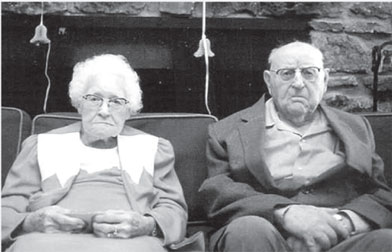Enjoy the pleasures of old age
 Ageing
is the accumulation of changes in a person over time. Ageing in humans
also refers to a multidimensional process of physical, psychological and
social change. According to psychologists, old people belong to three
divisions. Those between 65 and 74 belong to the 'young old' group.
Those between 75 and 85 are the 'middle old'. Those who are over 85
belong to the 'oldest old'. Ageing
is the accumulation of changes in a person over time. Ageing in humans
also refers to a multidimensional process of physical, psychological and
social change. According to psychologists, old people belong to three
divisions. Those between 65 and 74 belong to the 'young old' group.
Those between 75 and 85 are the 'middle old'. Those who are over 85
belong to the 'oldest old'.
One defect in the above classification is that chronological age does
not correlate perfectly with functional age. For instance, two people of
the same age may differ in their mental and physical capabilities.
Depending on cultural and personal philosophy, ageing has been viewed as
an undesirable phenomenon. To put it very bluntly, nobody wants to grow
old and lose their good looks and mental strength. The biggest worry
that troubles us is that old age brings us closer to death.
Although death is an inevitable phenomenon, modern medical science
has been able to prolong the life-span of humans in some developed and
developing countries. However, certain diseases still pose a threat to
old people. Dementia is one such abnormal medical condition marked by
multiple cognitive defects that include memory impairment. Scientists
say that it is caused by many other disorders such as Alzheimer's
disease, Parkinson's disease and Acquired Immune Deficiency Syndrome
(AIDS). Fortunately, dementia does not seem to affect a large segment of
elderly people. At the same time, it can strike anyone irrespective of
wealth or status. For instance, former American President Ronald Reagan
once said that he was suffering from Alzheimer's disease.
Neurological changes
With advancing age, most elderly people experience vision and hearing
loss. Old people have to be conscious of neurological changes. Our
nervous system is composed of neurons that receive, integrate and
transmit information. According to neurologists, the neurons in the
brain decline steadily with old age. Although this is something
alarming, it is a normal part of the ageing process.
 |
|
Elderly people are
better at regulating their emotions |
Some elderly people tend to forget names, numbers, addresses and
minute details of a given subject. Others may find it difficult to
communicate effectively or perform certain tasks such as going to the
toilet. This can lead to serious problems when they begin to experience
hallucinations, fears and delusions. In some extreme cases, elderly
people lose control of bladder and bowel functions leading to
incontinence.
With all the age-related problems, men, more than women, entertain
sexual desires even in their seventies. Although medical scientists
speak of 'male menopause', the changes in males occur gradually. Access
to sophisticated medical care plays an important role in maintaining
good health among old people. With proper guidance most elderly people
have slowed down the ageing process to a great extent. As a result, the
grey population in most developed and developing countries appears to be
on the increase.
Natural phenomenon
It is common knowledge that about 150,000 people die each day across
the globe. Out of them about 100,000 people die of age-related causes.
This is a natural phenomenon that cannot be reversed by science.
Despite physical and cognitive declines seen in ageing, most elderly
people do not think seriously of fast approaching death. This is partly
due to the surprising finding that emotional experience improves with
age. Most adults are better at regulating their emotions and thinking
positively.
Most elderly people consult medical scientists to find out whether
they could age successfully. This can be done if elderly people adopt
three strategies. The first strategy is to remain physically and
mentally healthy. For physical fitness we need regular exercise. For
mental fitness we need to exercise the brain. By doing so, we can keep
most diseases at bay. Secondly, elderly people must have the high
cognitive and physical function capacity. Thirdly, and most importantly,
there should be active engagement with life.
The good news is that Sri Lanka's elderly population has increased to
four million or 18 percent of the total population during the past four
decades. It is estimated that the rate will increase to five million or
22 percent of the total population in 2031. This is due to the
availability of sophisticated medical care in the Government and private
sectors.
Apart from scientists and psychologists, writers too have paid
attention to ageing. Charles E. Carpenter is one such writer who said,
"Those who enjoy the large pleasures of advanced age are those who have
sacrificed the small pleasures of youth." The quotation is self
explanatory but it is loaded with meaning.
|

